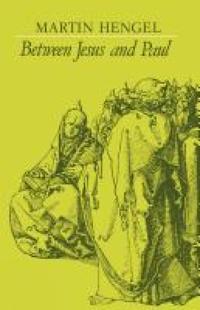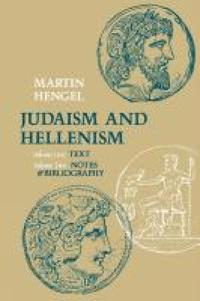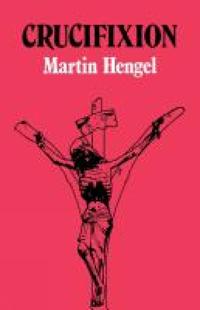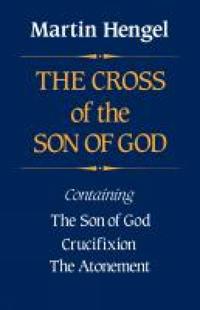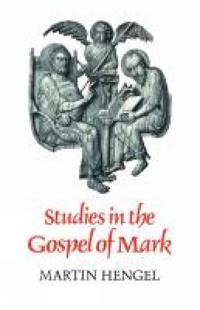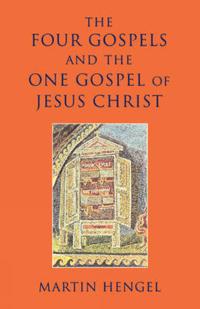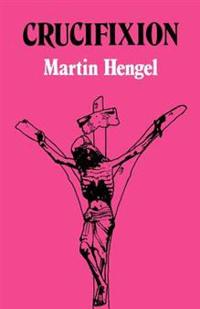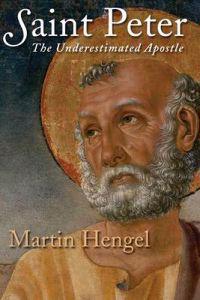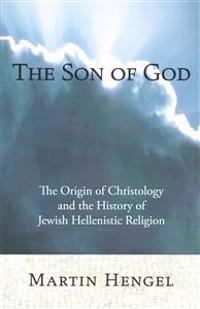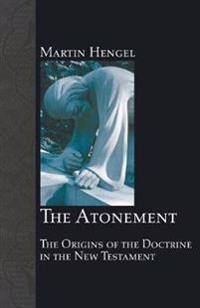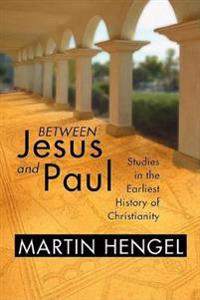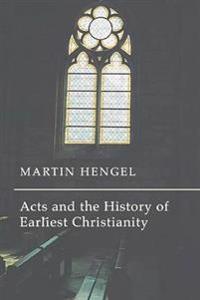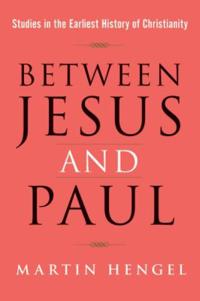Between Jesus and Paul (Häftad)
avMartin Hengel
ISBN: 9780334000921 - UTGIVEN: 1983-07More happened in the period between Jesus and Paul, Professor Hengel argues,. than in the whole of the next seven centuries, up to the time when the doctrine of the early church was completed. Certainly these decades are crucial to our understanding of the development of earliest Christianity. Howev[...]
Judaism and Hellenism (Häftad)
avMartin Hengel
ISBN: 9780334008156 - UTGIVEN: 198104This is the fascinating story of a group of reformers who tried to go too fast, bungled their reform, and so changed the course of history. Hengel's thesis is that Hellenistic influences were, and had been for centuries, smoothly penetrating Judaism even in Jerusalem; there was respect on both sides[...]
Cross of the Son of God (Pocket)
avMartin Hengel
ISBN: 9780334019633 - UTGIVEN: 1989-06This volume conveniently collects together three related short studies by Professor Hengel, The Son of God, Crucifixion and The Atonement. Together they form an important introduction to the crucial period of Christian belief between the crucifixion of Jesus and the writings of Paul.[...]
Studies in the Gospel of Mark (Häftad)
avMartin Hengel
ISBN: 9780334023432 - UTGIVEN: 198505Here Professor Hengel argues with a wealth of documentation that the traditional views of the origin and content of the Gospel of Mark have far more to be said for them than has been usually allowed by modern New Testament scholars. He argues that the tradition contained in the Gospel is that handed[...]
The Four Gospels and the One Gospel of Jesus Christ (Häftad)
avMartin Hengel
ISBN: 9780334027591 - UTGIVEN: 200007Asks how the term 'gospel' came to be used both for proclamation and narrative, and why the church in forming the canon of scripture chose to include four different and sometimes contradictory accounts of the life of Jesus.[...]
Crucifixion in the Ancient World and the Folly of the Message of the Cross (Pocket)
avMartin Hengel
ISBN: 9780800612689 - UTGIVEN: 1977-11Saint Peter (Häftad)
avMartin Hengel
ISBN: 9780802827180 - UTGIVEN: 201009Many biblical scholars treat the apostle Peter as a vague figure in the early church and regard the early tradition as something that cannot be trusted. In Saint Peter: The Underestimated Apostle Martin Hengel rejects the common minimalist view about Peters role in the Scriptures and in the early ch[...]
The Atonement: The Origins of the Doctrine in the New Testament (Häftad)
avMartin Hengel
ISBN: 9781556352317 - UTGIVEN: 200702Between Jesus and Paul: Studies in the Earliest History of Christianity (Häftad)
avMartin Hengel
ISBN: 9781592441891 - UTGIVEN: 2003-03Acts and the History of Earliest Christianity (Häftad)
avMartin Hengel
ISBN: 9781592441907 - UTGIVEN: 200303The Charismatic Leader and His Followers (Häftad)
avMartin Hengel
ISBN: 9781597520775 - UTGIVEN: 2005-01Between Jesus & Paul (Häftad)
avMartin Hengel
ISBN: 9781602589919 - UTGIVEN: 2013-10Martin Hengel spent a lifetime studying the first three decades of Christianity--the span from Christ's ascension to Paul's conversion. Between Jesus and Paul represents a collection of six formative studies by Hengel concerning early Christology, the formation and success of the Christian mission[...]

